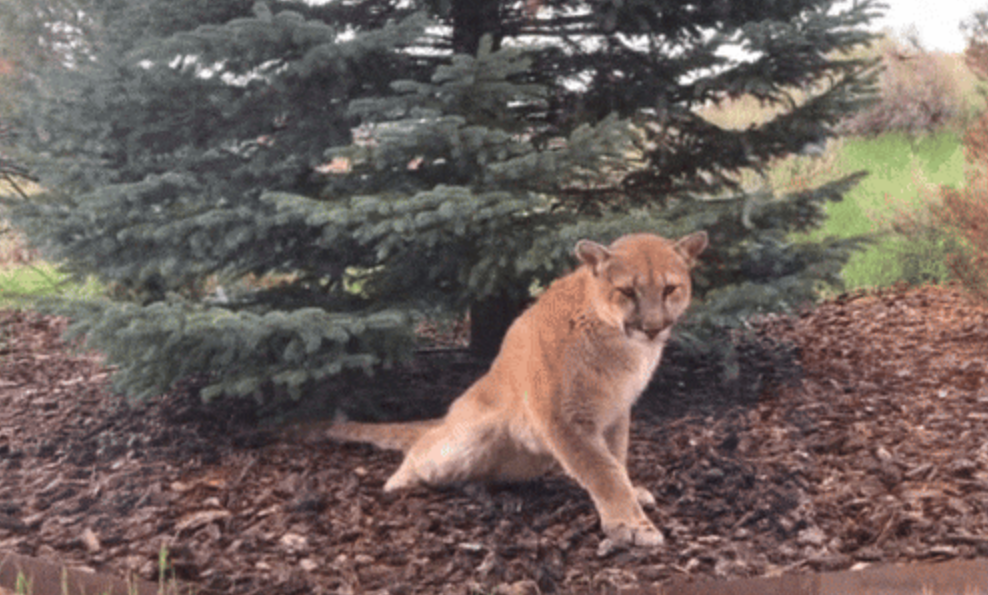Photo courtesy of Colorado Parks and Wildlife Department
When Colorado Parks and Wildlife euthanized a mountain lion in Douglas County last year, there was little explanation for what had left the predator limp, disoriented and barely able to move.
Video taken by a homeowner on May 12, 2023, showed the mountain lion dragging its front paws on the ground and staggering as it struggled to stand up. A post-mortem examination of the mountain lion reportedly found no skeletal abnormalities that would have caused it to limp.
Now, exactly one year after the 1-year-old lioness was reported to the Colorado Parks and Wildlife Department, scientists say they’ve discovered the cause of her illness: Stagger’s disease, a usually fatal neurological syndrome found in European domestic cats.
A study published this week in the journal Emerging Infectious Diseases says this is the first time scientists have found the Rastrella virus, recently identified as the cause of the deadly disease, in a North American mountain lion.
The serious disease is difficult to diagnose, and final confirmation was only made possible through collaboration with researchers at the Friedrich-Loeffler Institute in Germany, Dr. Karen Fox, lead author of the paper, said in a news release.
Fox, a researcher in the College of Veterinary Medicine and Biomedical Sciences at Colorado State University, Fort Collins, also previously worked as a pathologist for the Colorado Parks and Wildlife Department.

Scientists don’t yet know how widespread the virus is among Colorado’s domestic cats and wild animals. In Europe, the Rastrella virus causes a deadly disease in cats, but it has also been reported to be found in a variety of other species, including rodents, donkeys and marsupials.
The “surprisingly broad range” of other mammalian hosts for Rustrella virus (RusV), according to the study, has raised concerns that the virus could spread between humans and animals, although this has yet to be studied.
“Given the broad host range of the virus in Europe, RusV should be considered a potential cause of neurological disease in any mammalian species in North America,” the study states.
The study suggests that small rodents in Colorado should be studied to determine whether they may be reservoirs, or carriers of the virus that do not suffer any ill effects.
Veterinarians from Colorado State University and Colorado Parks and Wildlife will also be closely monitoring for new cases, the agency’s release said. Members of the public who see a mountain lion staggering, having trouble walking or behaving erratically should contact their local Colorado Parks and Wildlife office to report the behavior, the release said.
“Now that we know what to look for, it should be easier to find new cases, if there are any,” Fox said in a statement. “We will continue to collaborate and learn what we can from our European colleagues, while continuing to look for new cases of this alarming disease here in Colorado.”


